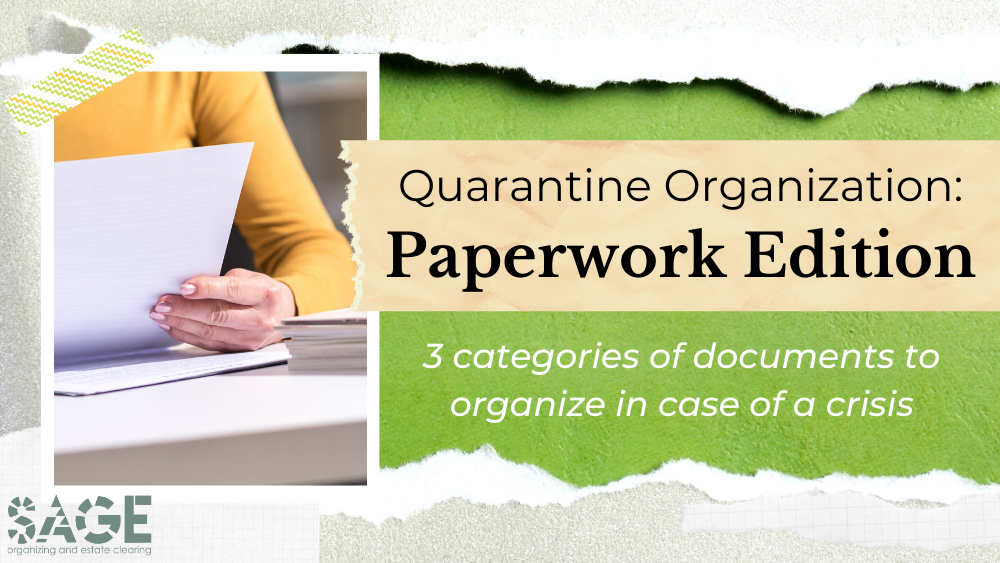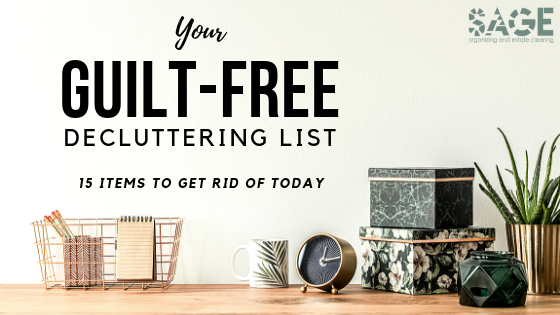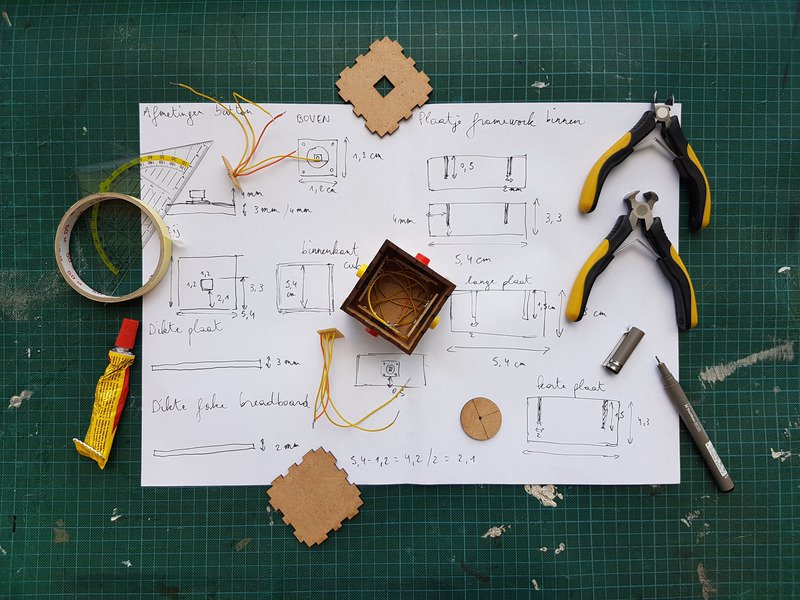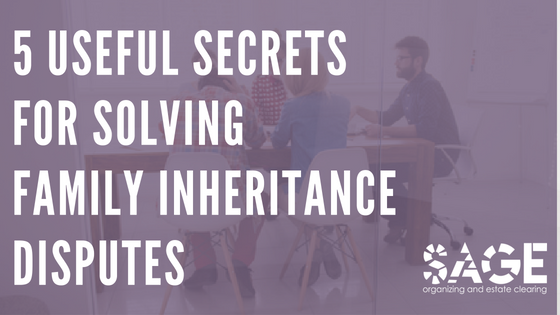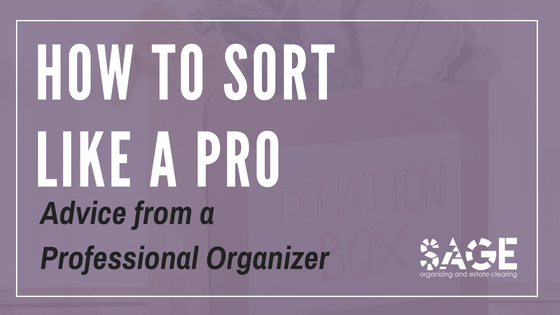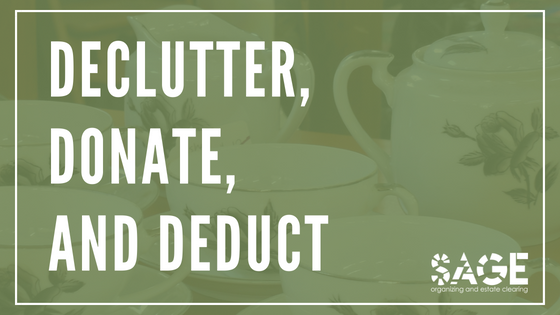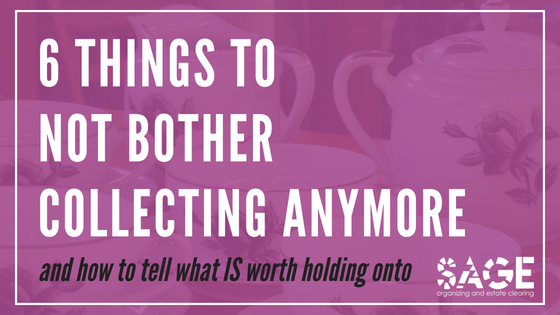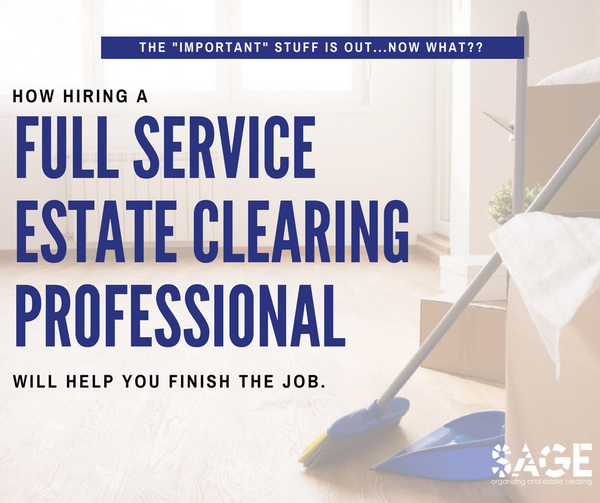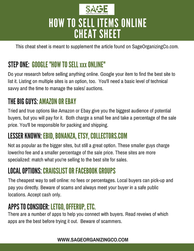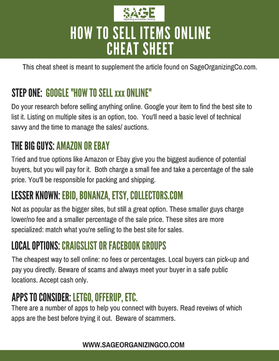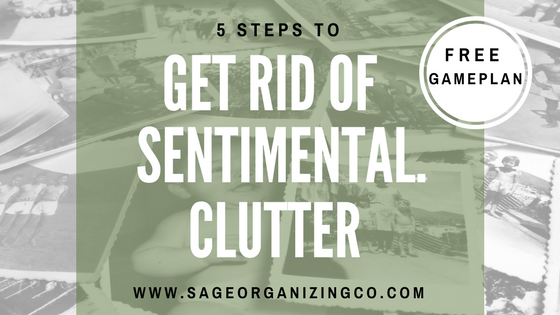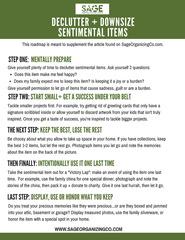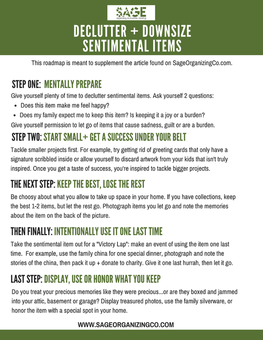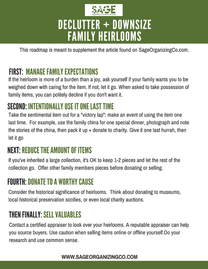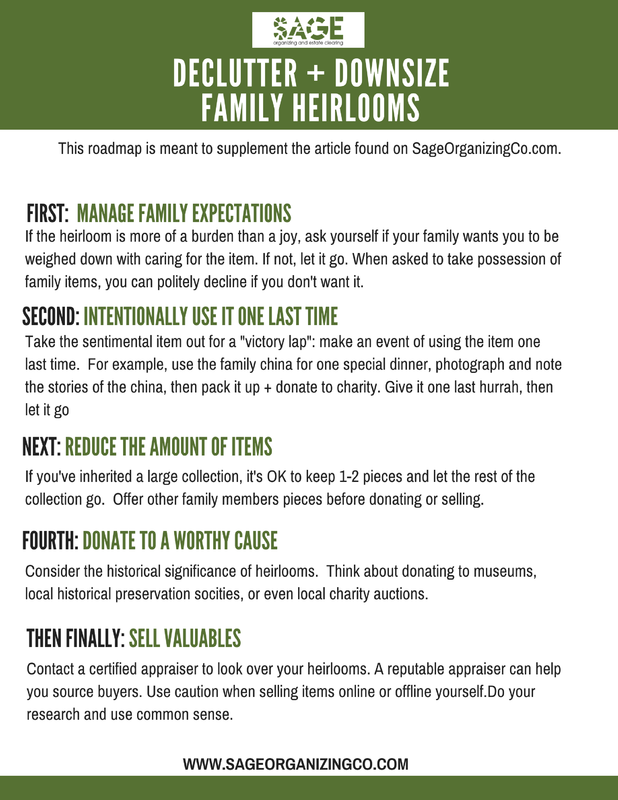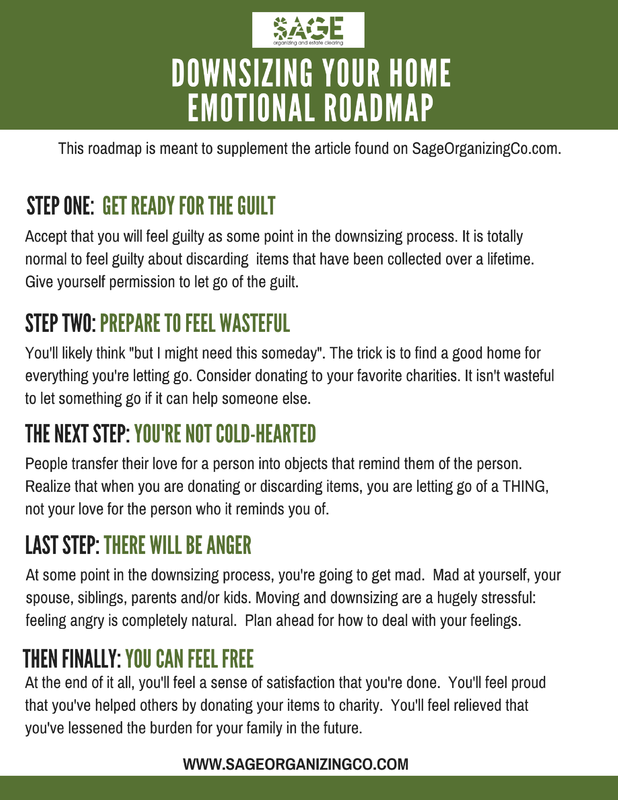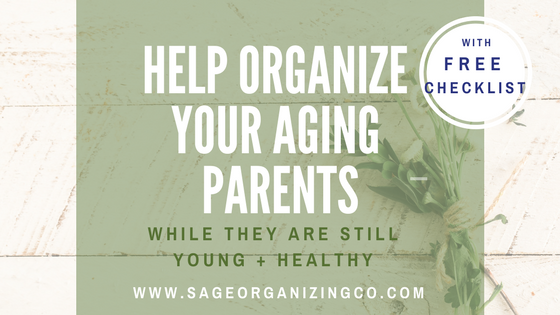|
Hiya fellow Quarantine Queens! I've been seeing a lot of posts swirling around the internet about banana bread, Tik Tok dances, and other activities to keep us busy at home. Many of my friends have texting me asking, "Alright Candi, I finally have some time to get my life together. I want to get an organizing project done but not sure what to tackle?" I don't know about you all, but being in quarantine has not only freed up some time for me, it has also made me think about organizing some of the essential "crisis" paperwork. Now, you may be wondering, "Candi, my favorite professional organizer, what in the world is 'crisis' paperwork!?" Well, I am so glad you asked! I'm about to fill you in. Crisis paperwork is paperwork that is important and and helpful during . . . you guessed it. . . a crisis- I'm here all night ladies and gentleman, well, and morning and afternoon, actually right now I'm here at home everyday all day. Okay okay, back to paperwork organization. Crisis paperwork, you may find, is what many consider death or doom + gloom paperwork. However, I have found: Using the phrase "Death Papers:" -Major bummer -Feelings of sadness -Denial settles in Using the phrase "Crisis Papers:" -Confident -Feelings of preparedness -Ready to take on the world As an estate clearing professional, I have seen the tremendous confusion and concerns that have arisen when a crisis occurs and necessary paperwork/important documents are either uncompleted and/or can't be located. During a crisis, emotions are already running high and stress is inevitable. Make it easier for you and/or your loved ones by identifying and completing your crisis paperwork NOW and organizing it in a designated space away from other miscellaneous paper. Here are the three categories of paperwork to organize your life for a crisis: 1. Healthcare Forms Healthcare forms that are essential to have finished and organized before a crisis include Healthcare Power of Attorney AND a Living Will. These two documents often go hand-in-hand and help protect your wishes as far as health and medical care while you are still alive. There are many situations and crises that would involve you being alive but unable to communicate what kind of medical treatment you want. Now, let me tell you why it's important to have BOTH of these documents. A Living Will lists out your desire or refusal of medical treatment if you are either permanently unconscious or terminally ill. This is an important document to organize before a crisis like the above to reduce emotional stress on loved ones as best as possible and to ensure you are being cared for the way YOU want. However, a Living Will is only used if the patient is deemed permanently unconscious. If you are temporarily incapacitated and are expected to recover, a Living Will does not take effect, therefore; the only person who could make medical decisions on your behalf (even if you're in a freakin' coma) would be a pre-designated Health Care Power of Attorney-- this is why it is ESSENTIAL to have both of these forms completed. I have conveniently included a link to your Health Care Power of Attorney and Living Will combined form ONLINE here. Take the time now in quarantine to go online and complete these essential documents to protect yourself and reduce the strain on family members. PRO TIP: Once you're done completing the forms, make sure your Health Care Power of Attorney has the original copy deeming his or her authority, you have a copy, and your healthcare providers also have a copy to put in your medical records. 2. Vital Life Documents This category of documents includes:
I HIGHLY recommend ordering an accordion file folder like this one on Amazon to keep all of your vital life documents together. Take advantage of the labels and use the bullets I listed above to create labels for each pocket. One step further, add a large label to the outside of the folder that says "Vital Life Docs." You don't need a fancy label maker, paper and tape work great! If you have a home office, store the accordion file there. If not, find another easy to access place. 3. Legacy Documents Legacy documents you should organize in case of a crisis are Last Will + Testament, records of all banking accounts, and list of all insurance policies. A Last Will and Testament is defined by LegalZoom.com as "A legal document that lets you, the testator (the person making the will), designate individuals or charities to receive your property and possessions when you pass away. . . A last will also allows you to name a guardian to care for minor children. The main purpose of a will is to ensure that the testator's wishes, and not the default laws of the state, will be followed upon the testator's death." This form is pretty self explanatory on why it is extremely important to have completed and organized before a crisis. You can easily create your Last Will and Testament online with Legal Zoom here. You'll also need to create a list of bank, investment, retirement/pension account numbers to ensure that all accounts are protected and resolved in case of a serious crisis. Lastly, compile all of your insurance policies-- most importantly your life insurance policy! Again, I highly recommend grabbing a second accordion file for this category of paperwork and following the instructions in step two for these documents. Phew, and that's all I got for you today folks! I GUARANTEE if you take the time to complete and organize the above documents, you will feel like you have your life together and more importantly you will be PREPARED in case of a crisis. Quarantine time really puts things into perspective and reminds us how fragile and valuable life is. Take care of yourself and make things easier on trusted family and friends by organizing the above "Crisis Paperwork." Have questions on any of the listed forms or documents? Comment below! If you're looking for more organization ideas and tips, follow Sage Organizing Co. onPinterest! Need more help with organizing your home or estate clearing? Contact us and book a consultation to start your organized life today! Professional Disclaimer: The ideas, recommendations, and opinions on this website, blog, and made in person are for educational and entertainment purposes only, and should not be considered legal, financial, or medical advice. I am not an attorney, doctor, or licensed financial professional. Sage Organizing Co., LLC is not liable for any losses or damages related to actions or failure to act related to the content of this website, blog, or in-person discussions. If you need specific legal, financial, or medical advice, consult a professional in your area.
0 Comments
Before you can get properly organized, it is important to declutter your home! Now wait, I can already hear you saying, "That's great Candi, but where do I START?!" I totally understand what you mean. It can be hard to decide what to give away and what to keep especially when we feel attached many items in our home. How many times have you thought, "Well, maybe I'll need this sometime in the distant future?" or "What if I regret/feel guilty about getting rid of this?" I know the feeling and that is why I am here to help! I have compiled a short list of 15 items you should NOT feel bad about getting rid of. Whether you are planning on moving, recently moved, or just plain tired of the disorganization, this list will guide you in starting to declutter your home. Some items on the list can definitely be thrown away, but I highly recommend you consider the condition of the item first and if it should be donated so that somebody else can benefit from it. Your GUILT-FREE Decluttering List 1. Old nail polishes and expired skincare/makeup 2. Clothing you haven't worn in years or clothing you bought years ago but never wore 3. Games and puzzles with missing pieces 4. Old children's toys and dog toys (this is important not only for decluttering but for sanitary purposes too!) 5. Books, including recipe books, that you don't plan on reading again or reading at all (be honest with yourself here) 6. Mostly empty cleaning supplies/bottles and condiment bottles 7. Broken jewelry or jewelry you never wear including watches 8. Old receipts, coupons, flyers, notes, and paper (If there is info you REALLY need, transfer it to a document on your computer/phone!) 9. Children's art work, completed school work, and old baby clothes... narrow down to just a few of these if you want memories or take photos on your phone. I know it can be hard, but you definitely don't need all of it! 10. Pens, markers, and any other craft supplies that are old or excessive 11. Old/frayed underwear, socks, and undergarments 12. Plastic bags from grocery and shopping stores 13. DVD's, CD's, and VCR tapes as well as old electronic players 14. Old, damaged cooking utensils such as spatulas and cooking spoons 15. Old or worn rugs, towels, and blankets (I especially like to switch out my old hand towels with new ones so I always have bright white and fresh towels in the bathroom!) Phew, and that's it folks! Of course, this isn't a comprehensive list for everything you need to get rid of, but it's a good place to start. And, let me remind you one last time, you do NOT need to feel guilty about throwing away or donating any of the items I listed! If you're looking for more organization ideas and tips, follow Sage Organizing Co. onPinterest! Need more help with organizing your home? Contact us and book a consultation to start your organized life today!
Professional Disclaimer: The ideas, recommendations, and opinions on this website, blog, and made in person are for educational and entertainment purposes only, and should not be considered legal, financial, or medical advice. I am not an attorney, doctor, or licensed financial professional. Sage Organizing Co., LLC is not liable for any losses or damages related to actions or failure to act related to the content of this website, blog, or in-person discussions. If you need specific legal, financial, or medical advice, consult a professional in your area. Many of us grow up dreaming about the big, beautiful home we are going to have with our spouse and future children. We drive through neighborhoods in our hometowns thinking about what our ideal home would look like and fantasize about each family member having their own bathroom! However, there comes a point in time where we reconsider what we truly want. Is a big home really what we still want later in life? It is normal to think maybe it is time to downsize once all the kids are grown, but it is also hard to let go of the house we have a sentimental attachment to and where sweet memories were created. Though it can be emotionally confusing, downsizing may be a great decision for you. Sage Organizing Co. is here to give you a few ways to know if downsizing is right for you. 1. You're struggling to keep up with the maintenance and necessary repairsWhether it be financially, physically, or emotionally, if keeping up with home maintenance and repairs is difficult, it may be time for you to consider downsizing. It can be terribly frustrating when it feels like there is ALWAYS something to be fixed in your house. Right when you're done fixing and paying for one repair, another thing breaks! Not only is this frustrating but constant repairs and maintenance is time-consuming and expensive. The smaller the house you live in, the fewer things there are to break and keep up with. 2. You're planning on retiring soon and live far from familyMany people decide to downsize once they retire as this leaves more flexibility in retirement income. Additionally, it gives you more time to focus on your health and happiness. Many people who plan on retiring soon decide on a smaller home without steps that will be hassle-free. Downsizing is also a perfect opportunity for retirees to move close to children and grandchildren who can help in the future. 3. You feel overwhelmed with all of your "stuff"We often feel a need to fill all the empty space once we move into a big house. As time passes, "stuff" accumulates. Sometimes you look around the house and don't even realize all the things you own! Other times we prefer to live in denial and never open the forbidden cabinets that have an unknown number of items in them. Once you've truly accepted that less really is more, it may be time for you to downsize. A smaller home will force you to reduce the stuff you have and really focus on what you truly need. 4. You feel "house poor" and sacrifice dreams because of itIf housing costs are preventing you from traveling and enjoying life's luxuries, downsizing is probably a good option for you. Moving into a smaller home or even an apartment/condo/townhome requires little maintenance which makes it possible for you to travel for longer periods and have the money to do so! Even if traveling isn't your thing, downsizing frees up money that can be spent on the things you are really wanting to try. Even if you now see that downsizing is right for you, you may be worried about the stress and complication of the process. ⠀ Not only do you have to move your things, you also have to decide what you want to keep and what you want to discard. THEN, you have to figure out the best way to discard your unwanted things.⠀ ⠀ Skip the stress and call Sage! Sage Organizing Co. will help you organize your valuables, pack them, and donate your unwanted items to local charities. ♻️⠀Comment below with any questions! ⠀ Let Sage make your downsize go smoothly and put your unwanted things to good use around the community. Contact us for more information! Professional Disclaimer: The ideas, recommendations, and opinions on this website, blog, and made in person are for educational and entertainment purposes only, and should not be considered legal, financial, or medical advice. I am not an attorney, doctor, or licensed financial professional. Sage Organizing Co., LLC is not liable for any losses or damages related to actions or failure to act related to the content of this website, blog, or in-person discussions. If you need specific legal, financial, or medical advice, consult a professional in your area.
It is a fact: in most family inheritance disputes, the only people who end up financially benefiting are the lawyers involved. But it doesn’t have to be that way! By organizing, documenting, and talking about your wishes early and often, you can solve family battles before they even begin. want to learn the 5 useful secrets for solving family inheritance disputes? read on...organize and document your wishesLong before it is necessary, start organizing and documenting your wishes. This means putting your wishes for “who gets what” in writing, preferable a legally binding will. Hire a lawyer to prepare the will, or create one yourself online at a reputable online company (such as LegalZoom). For example, if the eldest son is to inherit the family wedding ring so that he can keep it in the family, document it. Without express written decisions made in advance, family disputes can rise up. Tell your heirs your wishes so there are no unpleasant surprises after you’re gone. honor written wishesWhen a family member has passed away, the will is the legal document that has primary precedence is dividing up the remaining personal belongings, according to the law. It doesn’t matter if Grandma always told everyone that Billy should get the art collection: if it’s not in writing, it doesn’t legally count. If the deceased prepared an informal list of their wishes (or marked items with labels, as some people do) AND the heirs can agree to it, try to honor those wishes. The only people who financially benefit from estate battles are the lawyers involved. Related Articles: Sometimes You Can’t Do it on Your Own: When it’s Time to Throw in the Towel and Hire an Estate Clearing Professional to Help you Finish the Job Nobody Wants the Family Heirlooms: What to Do When it Happens to You with free Declutter +Downsize Family Heirlooms Game Plan Mom, We Have to Talk: 5 Ways to Discuss Downsizing with your Aging Parents with printable Discussion Cheat Sheet Don't remove anything from the house ahead of timeIf an ailing, aging parent remains in the home and starts “giving away” valuables or cash, the right thing to do is share that information with all the heirs. Often times the adult child who is the perceived “favorite” benefits from this: this is a sure way to cause family disputes in the future. Take the high road and disclose to other heirs what has already been given to you. After a family member passes, one of the very first things the Executor should do is change the locks to the house. This measure will prevent any neighbors, service providers, or unscrupulous heirs from “helping themselves” to belongings in the house. Nothing should be removed from the house until all the heirs can go through the home together. Always act with integrity and transparency to avoid family disputes over the belongings. immediate heirs onlyWhen it comes time for the heirs to organize and divide up the belongings, it should be the immediate heirs only. This means no spouses, children, grandchildren, or close family friends. Reducing the number of people involved will streamline the process and keep it simple. Related Articles: Help Organize Your Aging Parents (While They are Young + Healthy) with printable guide: Two Easyish Conversations to Have with Your Aging Parents Declutter, Donate, and Deduct 6 Things to Not Bother Collecting Anymore (and How to Tell What IS Worth Holding Onto) agree on a fair way to divide items equitablyBefore the heirs begin dividing up belongings, agree to a fair way to divide things up. Consider these ideas:
SummaryTake the time now to organize, document and talk about your inheritance wishes with your family. It will solve future battles before they even begin. Professional Disclaimer: The ideas, recommendations, and opinions on this website, blog, and made in person are for educational and entertainment purposes only, and should not be considered legal, financial, or medical advice. I am not an attorney, doctor, or licensed financial professional. Sage Organizing Co., LLC is not liable for any losses or damages related to actions or failure to act related to the content of this website, blog, or in-person discussions. If you need specific legal, financial, or medical advice, consult a professional in your area.
Whether you are organizing one room in your house or decluttering a home full of stuff, knowing how to efficiently sort is crucial to your success. Professional Organizers use the tips and tricks on this checklist to help clients, and now I'm sharing those hacks with you.
Ready to learn a professional organizer's tips for Sorting? Read on...Set yourself up for success
Before starting any organizing or decluttering job, make sure you have all the supplies you need before you get started.
Tools/ Supplies Needed:
Keep
The first step is to sort your "keepers" into a pile or one area. Keep items that you love and actively use. Items that aren't actively used should be moved into a long term storage area, such as a basement or attic.
Tools/ Supplies Needed:
*available space in actively used items *temperature variation in for long term solutions *transporting “keepers” to new location, if applicable Sell
Don't love it, but you'd like to make a little money from it? Consider selling online or offline.
Tools/Supplies Needed:
Related Articles
6 Things to Not Bother Collecting Anymore Nobody Wants Family Heirlooms: What to Do When it Happens to You. Gift These 5 Wonderful Experiences To the Ones You Love..Instead of Buying "Stuff" Donate
Have items that don't need to live with you anymore, but are still in great condition? Give to a local charity.
Tools Needed:
Discard
Some things just need to be discarded. If the items can't be sold or donated, its time for the trash/ recycling bin.
Tools Needed:
Related Articles
HOW TO DOWNSIZE YOUR HOME BEFORE MOVING 4 Smart Ideas to Sell Your Stuff Offline and 1 Really Dumb One with free printable How to Sell Items Offline Cheat Sheet 5 Tips to Sell Your Stuff Online with free printable How to Sell Items Online Cheat Sheet YOU'RE ready to sort like a pro!
Using this checklist, you now have the tools to Keep, Sell, Donate or Discard when you are decluttering and organizing.
Professional Disclaimer: The ideas, recommendations, and opinions on this website, blog, and made in person are for educational and entertainment purposes only, and should not be considered legal, financial, or medical advice. I am not an attorney, doctor, or licensed financial professional. Sage Organizing Co., LLC is not liable for any losses or damages related to actions or failure to act related to the content of this website, blog, or in-person discussions. If you need specific legal, financial, or medical advice, consult a professional in your area.
Decluttering your home and donating your items to local non-profit groups is a fantastic way to organize your home...and get a tax deduction.
Disclaimer: This information is compiled from many sources and is not intended as tax, investment, financial planning or legal advice and should not be relied upon as such. For tax, investment, financial planning or legal advice you are encouraged to consult with your personal advisers
Ready to learn how to Declutter, donate and Deduct? Read on...Declutter
When the organizing and decluttering bug strikes, separate things out to Keep, Discard, or Donate/Recycle piles.
Trying to figure out what you can easily declutter AND have it make a difference in your local community?
Donate
Before donating, be sure you are giving to an organization that is a 501 (c)(3) by the IRS. These are organizations that are recognized by the IRS as being tax-exempt by virtue of their charitable programs.
“Big name” charities (think Goodwill, Habitat for Humanity, or the Salvation Army) are no-brainers, but if you’re unsure about a group you’re thinking of giving to, you can always check their website or a site that vets non-profit groups, like Charity Navigator. Have big stuff to donate, but no truck and/or the muscles to get it done? Try the website Pick Up My Donation: they will find a non-profit group within 15 miles of your zip code and set up the pick-up, at no cost to you. Be sure you get a receipt or donation acceptance letter from the non-profit you give to. Keep a file in your glove box or console to organize on-the-go receipts, then transfer them into a permanent file in the house regularly.
Related Articles
Donate or Dumpster?: 3 Tips to Know What to Give Away vs. Throw Away 6 Things to Not Bother Collecting Anymore (and How to Tell What IS Worth Holding Onto) How to Beautifully Stage Your Home So it Sells in a Flash Deduct
Even though the standardized deduction for individuals and married couples has increased in 2018, it’s still a good idea to keep records of your charitable giving.
Keep track of what you give!
get organized and do good!
Decluttering, donating and deducting is a great way to organize your home, while making a difference in your community at the same time.
Professional Disclaimer: The ideas, recommendations, and opinions on this website, blog, and made in person are for educational and entertainment purposes only, and should not be considered legal, financial, or medical advice. I am not an attorney, doctor, or licensed financial professional. Sage Organizing Co., LLC is not liable for any losses or damages related to actions or failure to act related to the content of this website, blog, or in-person discussions. If you need specific legal, financial, or medical advice, consult a professional in your area.
Related Articles:
Sometimes You Can’t Do it on Your Own: When it’s Time to Throw in the Towel and Hire an Estate Clearing Professional to Help you Finish the Job. Nobody Wants the Family Heirlooms: What to Do When it Happens to You 5 Steps to Get Rid of Sentimental Clutter
How do you know which things in your collections have lost value over the years, and which are worth keeping? It can be tough to tell!
Items that your parents (or you) paid a lot of money for back in the day are now worth much, much less than was paid for them. An aging population has caused a heavily flooded market, making "valuables" less so. As a Professional Organizer and Estate Clearing Specialist, I see a lot of these collectibles in homes. Some are worth keeping, but unfortunately, most are not. Want to know what is worthless and how to tell the difference? Read On.
Loss in Value: Figurines and Commemorative Plates
|
|
Just for our readers, we’ve created this nifty How to Sell Your Items Online Cheat Sheet. Download and enjoy!
|
Step One: Google “How to Sell xxx Online”
You want to list your item on the site that has the biggest audience of potential buyers. For instance, if you were selling a set of golf clubs online, Ebay may be the best bet. But if you were selling custom hand-embroidered tea towels, Etsy is where you want to be. Selling antiques and collectibles often is easier on sites dedicated to those items.
The Big Guys: Ebay and Amazon
Both platforms have incredibly large audiences, thereby increasing your chances of selling your item quickly. There are fees associated with using both services, so be sure you are aware of what you are agreeing to before listing your items.
Nobody Want the Family Heirlooms
With Declutter +Downsize Family Heirlooms Game Plan
4 Smart Ideas to Sell Your Stuff Offline and 1 Really Dumb One
With How To Sell Items Offline Cheat Sheet
Sometimes You Can’t Do it on Your Own: When it’s Time to Throw in the Towel and Hire an Estate Clearing Professional to Help you Finish the Job.
Lesser Known: Ebid, Bonanza, Etsy, Collectors.com
Ebid is a site that is similar to Ebay, but doesn’t have the same amount of traffic. If you’re selling on Ebid, you’ll want to market your items elsewhere, too. On the plus side, however, EBid has lower fees than the big guys.
Bonanza is a great option for selling more unique and quirky items. Bonanza has a large audience, has no listing fee, and a low commission percentage compared to Ebay.
Collectors.com is a great option to sell your collectibles online.
Local Options: Craigslist or Facebook Groups
If you live in an area that has an active Craigslist community, try listing your item there. Photos are key to selling your items. Use common sense and caution when meeting with buyers: only accept cash and meet in public places.
If you live in a community without a lot of Craiglist action, selling your stuff in Facebook Groups is a great option. Find local Facebook groups to list your items and be sure to follow all the rules. You’ll keep all the profits of selling via Facebook
Estate Sales Aren't Always the Answer: Why Estate Clearing Might Better Fit Your Needs
5 Steps to Get Rid of Sentimental Clutter
With Declutter + Downsize Sentimental Items Game Plan
Mentally Prepare for Downsizing Your Home: 4 Tips to Control Your Emotions
With Downsizing Your Home Emotional Roadmap
Apps to Consider: Letgo, Offerup, Etc.
Apps like LetGo, OfferUp, and 5Miles, etc. are certainly options, however, many users complain about spammers, failure to show up to buy, etc. Be sure to read reviews from users before signing up for an app.
You Can Sell Your Stuff Online!
Leave a comment to let us know how your sale went!
Professional Disclaimer: The ideas, recommendations, and opinions on this website, blog, and made in person are for educational and entertainment purposes only, and should not be considered legal, financial, or medical advice. I am not an attorney, doctor, or licensed financial professional. Sage Organizing Co., LLC is not liable for any losses or damages related to actions or failure to act related to the content of this website, blog, or in-person discussions. If you need specific legal, financial, or medical advice, consult a professional in your area.
|
Download your free How to Sell Items Online Cheat Sheet here.
|
As an Estate Clearing Professional and Professional Organizer, I see entire rooms, closets, attics, garages, and even cars overflowing with things people can't get rid of for sentimental reasons. People are using their homes as storage facilities instead of places to actively live their lives.
In this post I'll be sharing some of my professional tips to help you get rid of some (but not all) of your sentimental clutter.
|
To help get you ready to declutter and downsize your sentimental items, I've created this free download. Enjoy!
|
Ready to get rid of some of your sentimental clutter? Keep Reading…
#1 Mentally Prepare
Take some time to think about why you are holding on to so many sentimental items. Is it because you truly treasure the item? Or does the item remind you of a person?
Remember, a thing is just a thing, not a person. Don't let your love for a Grandfather morph into love of a thing that reminds you of that him.
Ask yourself some questions as you go through items
- Does it make me feel happy? Keeping mementos of sad times or events doesn't make your life better. Let it go.
- Does my family expect me to keep this? Family expectations can be difficult to manage. Have you become the Keeper of all Historical Photos Since the Beginning of Time, but no one can identify any of the people in those pictures? Let them go.
- Is keeping it a joy or a burden? Are you excited that you have this item? Or is it more like “I guess I should keep this”? Let it go.
If you decide to let the item go, that is your choice: you do not need to announce it to your family. Just let it go.
Nobody Wants the Family Heirlooms: What to Do When It Happens to You
with free Declutter +Downsize Family Heirlooms Game Plan
Sometimes You Can’t Do it on Your Own: When it’s Time to Throw in the Towel and Hire an Estate Clearing Professional to Help you Finish the Job.
Help Organize Your Aging Parents (While They are Young + Healthy)
with free printable: Two Easy-ish Conversations to Have with Your Aging Parents
Mentally Prepare for Downsizing Your Home: 4 Tips to Control Your Emotions
with free Downsizing Your Home Emotional Roadmap
#2 Start Small: Get a success or 2 under your belt
Taken care of all the easy little things? Then move on to a little bigger (but not huge) project. Try clearing out your t-shirt drawers of all the shirts you don’t really wear, you just keep because of the sentimental memories.
How about all your old college textbooks, student directories, and papers? You may want to keep the directory, just to see the old photos, but you should be able to feel confident about donating or recycling all the books and papers. I guarantee you are not going to need your essay on post-modern theory in 19th century American literature ever again.
Remember, you don’t need to get rid of ALL your sentimental items. Just weed out the clutter so you have room for the things that truly mean something to you.
#3 Keep the Best, Lose the Rest
Having a tough time letting the collection go? Photograph the items!
What if you DO have enough room in your house to store all your sentimental clutter? There is still space in the attic! You can shove one more box underneath the stairs? Skip right on to Step #5!
#4 Intentionally Use It One Last time
Let’s say you’ve weeded out 20 old sports or concert t-shirts that you don’t need anymore, but can’t bear to discard or donate. Using the “soft goodbye”, allow yourself to wear it one last time and then instead of washing it, put it into the Goodwill bag. This lets you ease out of owning it without a blunt end.
Mom, We Have to Talk: 5 Ways to Discuss Downsizing with your Aging Parents
with free Discussion Cheat Sheet
Assess the Mess: How to Plan Out Downsizing a Home
includes free Room-by-Room Checklist
4 Smart Ideas for Selling Your Stuff Offline...and 1 Really Dumb One
with free cheat sheet
#5 Display, Use or Honor what you keep
Have tons of photos? Scan them in and set them as a slideshow on your computer. How fun is it to randomly see your 8th grade graduation photo? Put them in a pretty bowl on your coffee table for guests and family to look through and change the pictures out every couple of months.
Honor items that truly have a place in your heart by displaying them in your home. Have a ceramic bowl you made in art class in 3rd grade? Pull it out of storage and use it as a change bowl. Keeping you child's baby blanket they came home from the hospital in? Cut it into dish towels so you can use and enjoy seeing it everyday!
YOu are ready to get rid of (some, but not all) of your sentimental clutter.
Professional Disclaimer: The ideas, recommendations, and opinions on this website, blog, and made in person are for educational and entertainment purposes only, and should not be considered legal, financial, or medical advice. I am not an attorney, doctor, or licensed financial professional. Sage Organizing Co., LLC is not liable for any losses or damages related to actions or failure to act related to the content of this website, blog, or in-person discussions. If you need specific legal, financial, or medical advice, consult a professional in your area.
|
To get you started on your decluttering journey, we're sharing this Declutter + Downsize Sentimental Items Game Plan. Enjoy...and Good Luck!
|
Related Articles
with free Declutter +Downsize Family Heirlooms Game Plan
Help Organize Your Aging Parents (While They are Young + Healthy)
with free printable: Two Easy-ish Conversations to Have with Your Aging Parents
Mentally Prepare for Downsizing Your Home: 4 Tips to Control Your Emotions
with free Downsizing Your Home Emotional Roadmap
Mom, We Have to Talk: 5 Ways to Discuss Downsizing with your Aging Parents
with free Discussion Cheat Sheet
Assess the Mess: How to Plan Out Downsizing a Home
includes free Room-by-Room Checklist
As more and more of the US population ages, downsizes, and passes away there is a tremendous amount of STUFF flooding the market. Younger generations are faced with inheriting a sizable amount of family heirlooms, but their homes are already full. It seems nobody wants the family heirlooms anymore. So what can you do when it happens to you?
In this article, we'll discuss some options for what to do with the family heirlooms when nobody wants them. As a bonus for readers, we are sharing this free printable Declutter + Downsize Family Heirlooms Game Plan.
|
Click here to download the Declutter + Downsize Family Heirlooms Game Plan.
|
Want to learn what to do when nobody wants the family heirlooms? Keep Reading.
#1 Manage Family Expectations
Obviously, there are many family heirlooms that are truly treasured and gratefully accepted. However, there are also heirlooms that younger generations accept out of a sense of duty, guilt, or without even being asked if they want.
Burden vs. Joy
If you're soon-to-be-inheriting, carefully consider what you honestly want to accept. Accepting a family heirloom should be a joy, not a burden to carry. If you do not have the space for the item, respectfully decline to take it. If the item causes you emotional or financial distress, don't take it. Think of it this way: would your grandmother want you to have to pay for a storage unit so you can keep her dining room table?
The Guilt
Often times, it is guilt that forces us to take things we really don't want. Human beings have the tendency to merge their emotions for a person into the THINGS that person owned. But remember: it is just a THING, not a person. Your love for your great aunt isn't lessened because you don't want her silver tea set. You still love her...you just don't love tea sets.
Things Nobody Ever Wants
There are things that get held onto and passed down that nobody ever wants. Letters written in anger, racist antiques, and ashes of the deceased top the list. If an heirloom makes you feel sad, ashamed, or unjustly burdened, give yourself permission to get rid of it. The things that live in your house should make you feel happy.
Tacky and outdated collections are another thing nobody ever wants. Consider selling or donating items you know you will never even take out of the box.
Help Organize Your Aging Parents (While They are Young + Healthy)
Mentally Prepare for Downsizing Your Home: 4 Tips to Control Your Emotions
Declutter, Donate, and Deduct
#2 Intentionally Use It One Last Time
Another idea is to frame the heirloom and display it in your house. Baptismal gowns, old letters and recipes, photographs, and military awards all lend themselves to display in shadowboxes. Have items professionally framed to preserve them.
Perhaps one of the best ideas I've come across is giving the item a "Victory Lap". Let's say you've inherited the family wedding china...which has been packed away and sitting in your attic since you got it. Using the Victory Lap concept, you would make an event out of using it one last time.
Unpack the china and set your table with it. Invite as many family members as you can for dinner to use the china, even if it's just takeout pizza. During dinner, reminisce about the family member that owned the china and take lots of photographs. Offer each family member a place setting to take home. Pack up and donate the remaining pieces to charity. Be sure to share the photos with your family.
#3 Cut Down Collection Size
If it is a collection you'll never use or display, give yourself permission to let it go. You may feel guilty for selling or donating am family heirloom collection that a grandparent spent years building, but remember: theses are just THINGS, not a person. You still love your grandparent even if you donated their Depression glass collection.
#4 Donate to a Worthy Cause
#5 Sell Valuables
The best advice is to consult with a reputable certified appraiser. Having a professional appraiser look at your items is worth the reasonable fee they charge. Professionals can keep you from throwing away things your thought were fakes (such as jewelry) and give you an idea of what an item may be worth.
If selling items yourself, use extreme caution. Be sure to only accept cash from buyers, meet at a safe public location, and have another person with you. You can never be too careful.
- Mom, We Have to Talk: 5 Ways to Discuss Downsizing with your Aging Parents
- Assess the Mess: How to Plan out Downsizing a Home
- 4 Smart Ideas for Selling Your Stuff Offline...and 1 Really Dumb One
- Sometimes You Can’t Do it on Your Own: When it’s Time to Throw in the Towel and Hire an Estate Clearing Professional to Help you Finish the Job.
Now you have a game plan
Professional Disclaimer: The ideas, recommendations, and opinions on this website, blog, and made in person are for educational and entertainment purposes only, and should not be considered legal, financial, or medical advice. I am not an attorney, doctor, or licensed financial professional. Sage Organizing Co., LLC is not liable for any losses or damages related to actions or failure to act related to the content of this website, blog, or in-person discussions. If you need specific legal, financial, or medical advice, consult a professional in your area.
Grab a free game plan here!
Downsizing your home can be a tough emotional road.
In this post, I’ll be sharing the 4 tips for controlling your emotions before, during and after you downsize your home. As a bonus for my subscribers, I’m sharing this Downsizing Your Home Emotional Roadmap.
Get mentally prepared: let’s talk about the emotional impact of downsizing your home. Keep Reading.
#1 You’re Going to Feel Guilty, but let it go
Whether you put the guilt on yourself or somebody else is guilt-tripping you, it still feels pretty rotten, right?
Some common guilt-isms:
- My Mom (or whoever) gave this to me, so I have to keep it.
- It was expensive, so I should get my money's worth.
- It doesn't fit anymore, but one day it might.
Remember, WHEN THE GUILT SETS IN IT IS OK TO LET IT GO. Giving yourself permission to get rid of the guilt is liberating, y'all.
#2 You’re Going to Feel Wasteful: you are not.
It was/is considered wasteful to throw things out for ANY reason. Broken appliance? It can be fixed. Leftover Cool Whip containers? Save them to store leftovers. Whole mess of gift bags after a birthday? Save them and re-use. (See...I told you).
And let's not even get started on too small/slightly damaged clothes. Oy vey.
What I'm saying is IT ISN'T WASTEFUL TO LET SOMETHING GO IF YOU FIND A GOOD HOME FOR IT. Let someone else benefit from the things you don't use or need.
- Recycle and re-use things. But think about when it makes more sense to let it go.
- Save hand-me-down clothing for a friend or neighbor. And then get it out of your house. Those size 4 jeans you'll never fit in again could make a difference in someone else's life.
- Call a homeless shelter or a battered women's shelter or an animal shelter or a food bank and ask what they need. Chances are you have things in your house right now that could be doing good for others.
Mom, We Have to Talk: 5 Ways to Discuss Downsizing with Your Aging Parents
With free Discussion Cheat Sheet
Assess the Mess: How to Plan Out Downsizing Your Home
With free Room-by-Room Checklist
Help Organize Your Aging Parents (While They are Still Young and Healthy)
With free Conversation Guide
#3 You’re Going to Feel Cold-Hearted, but remember you're still a good person
But think about it: you are letting go of a THING, not your love for the person who gave it to you.
Just because I donated the encyclopedia set that I got from my Grandmother to Goodwill, it does not mean I don't love my Grandma. I kept one of the books and let the rest go. And I still think about my Grandma every day when I see that one encyclopedia volume on my office shelves. Win-win.
Same goes with emotional souvenirs from our youth. You don't need to keep every t-shirt from every sports team and vacation and event you went to. Those are THINGS. You will still have the memories even if you don't have bins of yellow t-shirts in the attic.
Helpful tip: if you struggle to let sentimental items go, keep one or two, then photograph the rest and put the pictures in an album.
Remember, you want to separate the object from the person when you are downsizing your house.
#4 You’re Going to Feel Angry, which is super normal
Mad at yourself. Why didn't I start downsizing sooner? Why did I waste my money on this? I'm such an awful person for being mad (#guilt).
Mad at your parents. Why did they leave all this for me to deal with? What in the Hell were they thinking?
Mad at your spouse, siblings and/or kids. Why aren't they pulling their weight in helping me? Why am I doing all this?
IT IS COMPLETELY NORMAL TO FEEL ANGER. Moving (including downsizing) is one of the most stressful things you can do. It is normal and healthy to feel upset. Accept that anger is going to be a part of the process and make a plan in advance for how to handle it.
Clutter Puts the Rage in Garage: 6 Steps to DIY the Garage of Your Dreams.
With free Garage Organization Planner.
4 Smart Ideas for Selling Your Stuff Offline...and 1 Really Dumb One
#5 BUT EVENTUALLY, You’re Going to Feel So Much Lighter
Downsizing makes your feel happier because you know that you've lessened the burden on your family in the future.
Downsizing your home makes you proud because you've helped others in your community by donating things you don't need or use.
Professional Disclaimer: The ideas, recommendations, and opinions on this website, blog, and made in person are for educational and entertainment purposes only, and should not be considered legal, financial, or medical advice. I am not an attorney, doctor, or licensed financial professional. Sage Organizing Co., LLC is not liable for any losses or damages related to actions or failure to act related to the content of this website, blog, or in-person discussions. If you need specific legal, financial, or medical advice, consult a professional in your area.
YOu are mentally prepared to downsize your home.
|
You know that in addition to being a tough task physically, downsizing your home is emotionally taxing. You now have your head in the game and know what to expect when it comes to the feelings you'll have.
To help you on your journey, I've created this Downsizing Your Home Emotional Roadmap just for you! Feel free to download it now. What emotions have you experienced when moving or downsizing? Leave me a note in the comments section! |
Mom, We Have to Talk: 5 Ways to Discuss Downsizing with Your Aging Parents
With free Discussion Cheat Sheet
Assess the Mess: How to Plan Out Downsizing Your Home
With free Room-by-Room Checklist
Help Organize Your Aging Parents (While They are Still Young and Healthy)
With free Conversation Guide
Want to help organize your aging parents? Read on.
Start Talking Before It Gets Awkward
I Know Your Excuses...because they’re the Same Ones I Used
- For APs, NOT TALKING about things is the norm.
- Ditto that for many families. And if you come from the Midwest (like me), we truly excel at not talking about things!
- Talking about Later Life Plans means eventually talking about Death. And nobody likes to think about that.
- There is legal paperwork involved and it’s too complicated, expensive, confusing, and/or overwhelming to start.
- There’s some sort of family discord and somebody will definitely object, be offended and/or hurt by the efforts to discuss Later Life.
- Everyone assumes that the adult child living closest to Mom or Dad will take care of it all.
- Money. Discussing financial plans for Later Life is awkward at best, taboo at worst.
Suck it Up, Buttercup.
Timing Is Everything
(aka Don’t Start Talking at Thanksgiving Dinner)
Emphasize Your Role as an Advocate
End the Conversation with a Plan, No Matter How Small
For example, you could say “Next time we talk, I’ll bring along a printed copy of a blank Living Will for us to discuss”. You also want to make sure you have an agreed-upon plan if your loved ones can no longer make decisions or in the event in an emergency.
A great resource is this free conversation guide, created by A Place for Mom.
Conversation #1:
What’s the Plan for All the Stuff in the House.
- Jewelry
- Sterling Silver (but not silver plated items)
- Coin, stamp, artwork, gun, crystal or other valuable collections
- Truly unique, high-end antiques that are in pristine condition
- Family photos
- Sentimental items (christening & wedding gowns, military memorabilia, etc.)
The best way to describe this is to quote this article from Forbes magazine: “Sorry, Nobody Wants Your Parents’ Stuff”. Start planning now for what will become of:
- “Brown” furniture
- Most mass-produced china and glassware
- Tchotchkes
- Organs (the musical instrument, not your innards)
- Greeting cards, magazines and newspapers with no historical significance
- Old Tupperware, appliances with frayed cords, and cookbooks
- Flower delivery vases
- Plastic souvenir cups and empty Cool Whip bowls. Trust me: your aging parents have these.
- Your school papers, textbooks, and every drawing you ever did. Keep your diploma, let the rest of it go.
- 80% of the stuff stored in the garage
- Clothing that hasn't been worn in decades
Want to help your aging parents with clearing out all the stuff in the house?
Related articles
Clutter Puts the Rage in Garage
The 3 Commandments of Closet Organization
Conversation #2:
Four Important Legal Papers
There are 4 important legal documents you should ensure your aging parent has.
- Will: An up-to-date Will is an important document.
- Living Will (also called Advance Health Care Directive)
- Durable Power of Attorney for Health Care:
- Durable Power of Attorney for Finances:
- Organ Donation registration
- Final Disposition Instructions (funeral and burial wishes)
- Digital Legacy Plan
How can you find out what documents you need in your state?
Want more Advice on Helping your Aging Parents?
- Come follow me on Pinterest: I have a great collection of information to help you + your aging parents.
- Join the Sage Advice Monthly E-News. Every month I share a easy tip to help organize your aging parents.
They have all the papers in order! Now what?
You've started the process of later life planning!
Coming soon...Later Life Planning Guide, workshops, and one-on-one coaching
Professional Disclaimer: The ideas, recommendations, and opinions on this website, blog, and made in person are for educational and entertainment purposes only, and should not be considered legal, financial, or medical advice. I am not an attorney, doctor, or licensed financial professional. Sage Organizing Co., LLC is not liable for any losses or damages related to actions or failure to act related to the content of this website, blog, or in-person discussions. If you need specific legal, financial, or medical advice, consult a professional in your area.
Categories
All
Back To Schoool
Before & After
Closet Organization Ideas + Hacks
Decluttering Your Home
Downsizing Your Home
Estate Clearing
Family Heirlooms
Family Schedule Logistics
Free Download
Garage DIY Organization
Garage Mudroom
Grocery Planning
Holiday Organizing
Home Organizing
Later Life Planning
Meal Planning
Mental Health
Moving
Organizing Aging Parents
Organizing Products
Selling Offline
Selling Your Stuff
Sentimental Items
Weekly Family Routine
Looking for something?
Archives
November 2023
October 2023
September 2023
April 2021
March 2021
February 2021
January 2021
December 2020
November 2020
October 2020
September 2020
August 2020
July 2020
June 2020
May 2020
April 2020
March 2020
February 2020
January 2020
December 2019
November 2019
October 2019
September 2019
May 2019
April 2019
March 2019
November 2018
October 2018
September 2018
July 2018
June 2018
May 2018
April 2018
March 2018
February 2018
January 2018
December 2017
November 2017
October 2017
September 2017
August 2017
June 2017
May 2017
April 2017
March 2017

